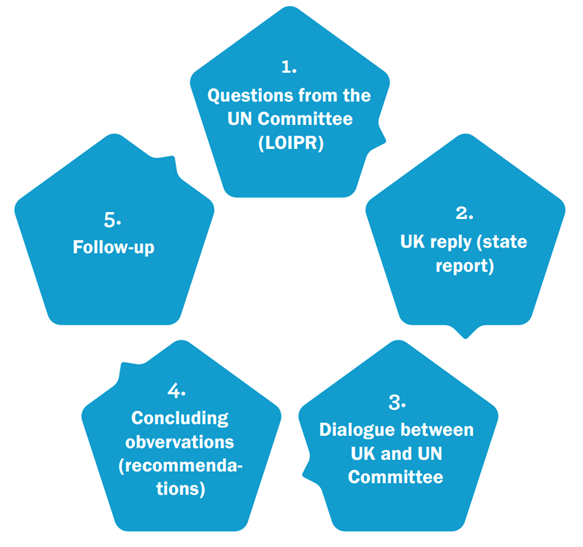UK Government report
The UK Government has one year to reply to the UN Committee's list of questions. It prepares a formal report drawing on input from the devolved governments.
Position statements
The UK Government must follow a strict word limit when submitting its official report. Accordingly, the devolved governments sometimes choose to publish a separate position statement so they can set out their position in more detail.
Shadow reports
Once the UK Government report has been submitted, stakeholders such as children's charities and NGOs can submit their own reports about how well children's human rights are being implemented and what further action they think is needed.
These reports are essential as they provide the UN Committee with an independent, non-governmental account of what life is like for children in Scotland. They help the UN Committee understand areas of concern and what recommendations would help address these.
Together works closely with its members to prepare its shadow report. Engagement usually includes a series of surveys, webinars and peer review. Together works with its members to support children to prepare their own report.
These shadow reports must be submitted one month before the UN Committee holds its pre-sessional working group.

